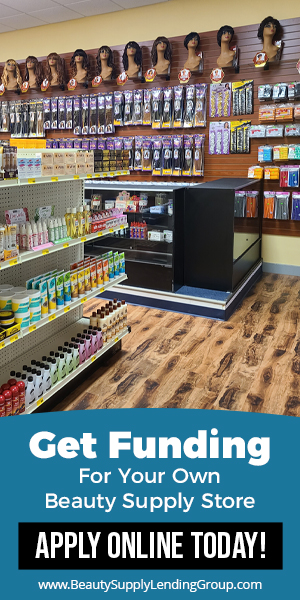Twenty-six-year-old UCLA graduate, skin connoisseur, and California native Jamika Martin is reimagining inclusivity in the clean cosmetic industry with her brand, Rosen Skincare.
The UCLA graduate has gone from formulating products in her dorm room at UCLA to selling products at retail conglomerates like Target and Urban Outfitters. Rosen Skincare now graces the shelves at Ulta Beauty.
Martin is uniquely setting herself apart from the rest. Unlike her competitors, her journey to entrepreneurship was a personal one. For most of Martin’s life, she suffered from severe acne breakouts and scarring. After several failed attempts using in-store remedies and treatments to help her condition, Martin decided to try Accutane twice—nothing worked.
“I was nine months off my second round of Accutane. I was scared to even do it the first time, [but] I was just at such a desperate point with my skin. I didn’t love my skin at all. I did it twice, and it didn’t work for me at all. So, I went into a target and looked at [all the products] when I realized [they were] the same brands [I’d] been using since the fifth grade. Nothing had changed. That’s what inspired Rosen,” Martin said.
Her frustration, coupled with her innate desire to learn more about her skin, birthed the creation of her business.
Originally named Rose Gold Cosmetics, Martin struggled to find the vision for her newly sought-out venture.
“My middle name is Rose, and that’s where the rose [component] comes from, but I was just like [the name] feels like makeup, and at that time, I had a more minimal, simple brand. I wanted something more unisex and clean,” she stated.
Martin’s goal to create an image that embraces health and prioritizes skin appreciation over clear, glass-like skin became the blueprint to her success.
After graduating in 2017, Martin decided to take her small business to the next level and apply for the Target Accelerator program.
“I participated in a summer accelerator program at my college, and that was super helpful to go from this farmers market [set up] to what differentiation looks like and what scale looks like. Just all these things — I was not familiar with, but I had not made any money at the time. It was not until April 2018, when I got into the Target accelerator [program] that I first understood retail. That is when I realized I could be on the shelves one day and [hopefully] at Ulta Beauty,” she stated.
As a result of being historically branded as a predominately white, woman elite category, clean skincare developed a rigid reputation for being inaccessible to the average consumer and Black people.
For decades, the cosmetic industry excluded Black women from the conversation of skin inclusivity. Consequently, they created products with ingredients that neglected the needs of major skin conditions common within the Black community, such as hyperpigmentation, oily skin, acne-prone skin, and eczema.
A phenomenon that beauty conglomerates like Ulta Beauty are making an effort to change by introducing industry platforms like its very own Muse 100, which is a celebration of 100 inspiring Black voices in beauty, each of whom is awarded a grant to further their impact. Martin is one of many Black women being honored. The list consists of Black trailblazers in every department, such as Janell Stephens, founder of Camille Rose, Diarrha N’Diaye-Mbaye, founder Ami Cole, and Shontay Lundy, founder of Black Girl Sunscreen. They are individuals whose sole mission is to work toward reversing discrimination in the beauty industry and representing the needs of Black consumers.
“The role of retailers is getting more diverse brands and founders on the shelves, but also investing in them [Black owned businesses] because a lot of the time Black founders don’t have access to the same resources,” Martin explained.
“I think what a lot of these retailers are still trying to figure out is how you work with an indie brand that doesn’t have Johnson & Johnson money. [It is important to] nurture them because when you do, you come out with these incredibly successful brands. Secondly, [it is important to have] diverse people making these decisions around how you’re serving people of color. I think you need people of color to make those decisions to make sure you have this evergreen pipeline that will last.” Martin stated.
Rosen skincare is sold in 700 Ulta Beauty stores nationwide and has just announced it’s releasing two new skincare products formulated for acne-prone skin and hyperpigmentation available on its official website.
Through her brand, Martin dedicates herself to advocating for accessibility and representing Blackness in the clean beauty space.






Comments are closed.